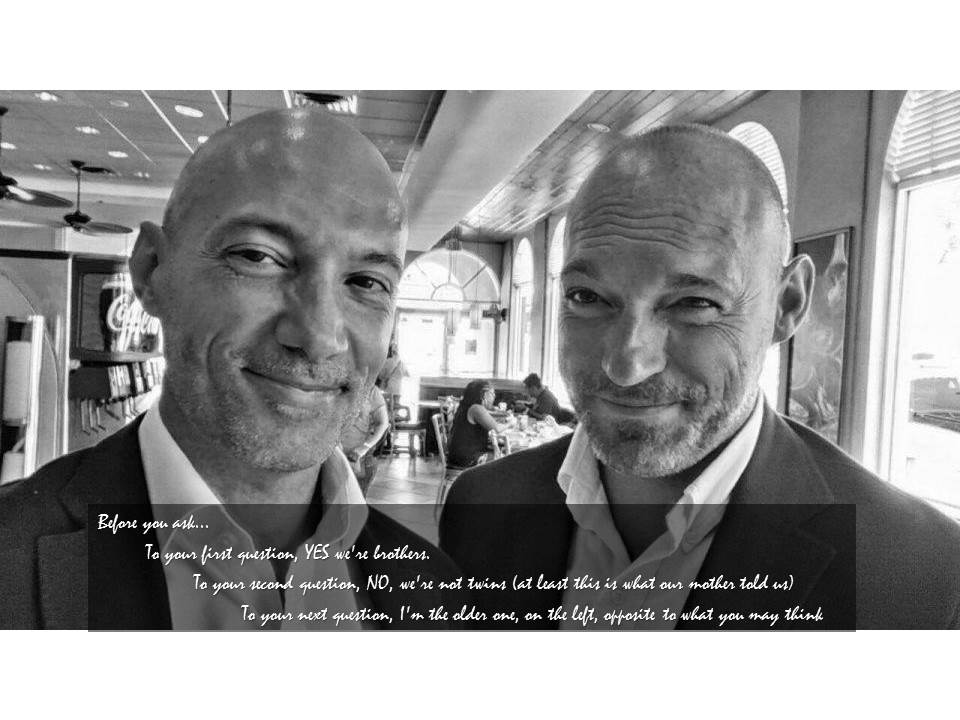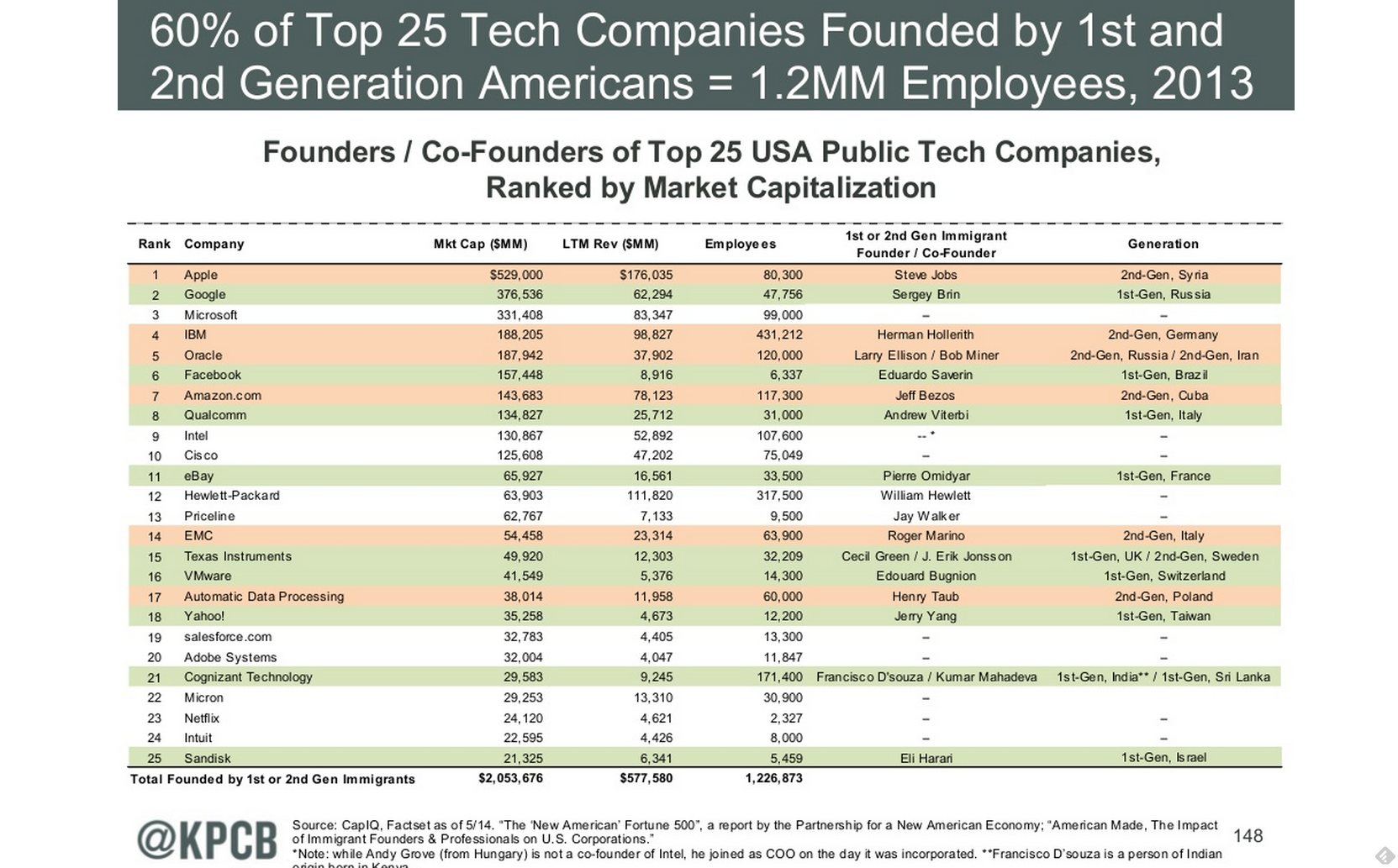The $Billion StartUp-Unicorn Trend Is Going Global
CNBC's edited version of this article is here.Published 5th of May, covering for eMerge Americas event in Miami 2015.
Go somewhere wild and remote – a forest, a desert, moorland or prairie.
Take nothing that with you: Wear no scent but your own. Let your thoughts be your own. Stand and listen, let the atmosphere permeate you. Forget the trivial concerns of human existence and feel what matters: the life around you; the movement of the air; the warm of the ground.
Feel, and Believe.
In such a way might you sense the a presence at once bold and timid; ancient and youthful; full of wisdom and naive as a child. Acknowledge that you have been noticed by a Wonder.
You have found the Unicorn
Unicorns, the whole venture capital industry is chasing them, not just the usual suspects, VCs, PE firms, but literally everybody else including 8 million accredited investors in US. $1bn start up valuations just became the new norm.
Every new start up, in their quest for funding, needs now to allude to this mythical animal as a mean to raise money.
Where do Unicorns come from?
Unicorns, a.k.a $1bn Start Ups, are rare, very rare. Let’s have a look at what we know about them, this will lead us eventually to the place they come from, the land of Unicorns:
In United States, immigrants generally have a greater propensity to launch new high-tech businesses.
This is a validated pattern and there is extensive research and of evidence around it (see papers from the national bureau of economic research here and Duke’s America's New Immigrant Entrepreneurs here
As of April this year, 24 out of the 54 unicorn start ups valued over $1bn are founded by an immigrant according to Dow Jones VentureSource.
That’s just under half of all of them. This pattern is consistent with previous reports, showing 46% of America's top venture-funded companies had at least one immigrant founder in 2011.
According to Vivek Wadhwa’s research at Duke, an astonishing 25% of all engineering and technology companies established between 1995 and 2005 where founded by immigrants (an estimated 52% of all in Silicon Valley), in turn, responsible for wealth creation in excess of $52 bn and just under 450.000 jobs at that time.
Not surprisingly, 7 out of the 10 most valuable and recognizable brands in the world were launched by immigrants or second generation immigrants.
These include Apple, AT&T, Google, General Electric, IBM, McDonalds or Marlboro.
Creating a unicorn-like company from the ground up is a daunting task, even if your product or service is highly desired by the masses or exponentially disruptive, the amount of work you need to put into it is overwhelming. It comes with huge trade offs, personal commitments and sweat, real sweat.
Venture capital knows this very well. We like to say:
“We bet on the jockey not on the horse” which is absolutely crucial at early stages of the Start Up.
In simple terms, from an investment perspective, the entrepreneur is the pivotal element to mitigate the different risks arising throughout the evolution of the company.
Two factors enter into play here: the inner motivation and the capacity for hard work of an entrepreneur
Emotions are the engine behind everything we do. If you are a true entrepreneur wholeheartedly committed to your project, investors will notice by the way you show up your emotions.
Emotional behavior gives them confidence you are going to stay through the different stages of your venture, even if you run out of money.
Believe it or not, this is more important than your start up revenue projections.
Immigrants are hard workers by definition. Many have been raised in challenging economies (or their parents did), constrained in resources and possibilities, trained throughout life to do more with less. They’re self made, determined, don’t give anything for granted and they strive to succeed, every day.
These are the exact qualities we look in entrepreneurs, given the Start Up world is a constrained environment, with very limited in resources, by its own nature.
Actually, creativity and genius are driven by constraints, those two qualities come from a real burning need driving our intellect to work harder. There's correlation between constraint and innovation.
The opposite situation is abundance and complacency, or corporate legacy, a greenfield for start up disruption.
Sequoia Capital is undoubtedly one of the most successful Venture Capital firms ever. A company formed by immigrants with Spartan rules and an attitude for perfectionism, backing up early stage companies and nurturing them to skyrocket in IPOs.
Sequoia’s children are the likes of Google, LinkedIn, Cisco, Yahoo, Oracle, Instagram, Paypal and even Apple. Their motto reads:
The creative spirits. The underdogs. The resolute. The determined. The indefatigable. The defiant. The outsiders. The independent thinkers. The fighters. The true believers.
These are the people who have imagined, started, organized and built Sequoia-backed companies that collectively are now worth over 20 percent of the total value of the NASDAQ stock exchange.
These are the kind of people we work with today. They are extremely rare. We're ecstatic when they choose Sequoia Capital as their business partner.
No wonder the majority of the entrepreneurs behind public tech giants in US are 1st or 2nd generation immigrants as well.
New lands for Unicorns
Venture capital as a resource to grow companies is much easier to find in North America, no debate. New start ups and entrepreneurs are born with this in mind and they start their journey to the north as early as in the early days of idea stage.
Immigrants come to US from East and South, those in technology primarily from the East, so far. However, new kids are coming to town, with a 163 percent increase in population between 2010 and 2050, the U.S. Hispanic community will account for one-third of this country, according to U.S. Census data,
And something else has been happening down there in South America during the last decade.
Latin America’s GDP will reach an estimated US$15.14 trillion by 2025, rendering it one of the most important global markets in the world. Not only is it on track to become a leading destination for investments, but it is also likely to be essential source of capital for global corporations.
Frost & Sullivan indicates a number of tendencies and developments. Latin America’s middle class is growing, and urbanization is up. More and more Latin Americans are getting connected, and infrastructure spending is on the rise.
Latin America will have 1.3 billion connections by 2016, including mobile phones, tablets and other M2M (machine-to-machine) devices, with increased broadband penetration and 4G as major factors in the region’s connectivity growth.
It’s precisely in emerging markets with lower legacy barriers where disruption and more rapid adoption of new technologies happens. We have seen this movie before, for well over a decade, where mobile technologies, wireless and smartphones were spreading faster than in mature countries (link) as other access mechanisms (legacy) were less of a barrier.
Start ups are surging in South America, aiming at its 200M+ population. Start Up Peru, Start Up Chile, Incubar in Argentina, iNNpulsa in Colombia or Telefonica’s cross atlantic Wayra acceleratior are literally thriving.
Seeding investments in the region have multiplied from 2010 to 2014.
Intel Capital, Axon Partners, Kaszek Ventures or Accel Partners are among the most active investors in the new promised land of Unicorns, with investments gravitating to Brazil in a major part.
Telefonica’s Wayra initiative alone has screened nearly 27.000 projects in less than 30 months of operations, with 438 start ups receiving seeding investments from the Telco giant. Of those invested, another $74M came additionally from 3rd parties in average rounds exceeding half a million dollars per project.
Despite the increasing activity from entrepreneurs and investments, many of these companies (and some Unicorns with them) will end up migrating to the land of opportunity, North America, seeking to close more capital intensive financing rounds beyond series A.
A new hunting plot for Unicorns
All above data indicates we are poised to see new Unicorns coming from the South. If you want to hunt the next unicorn, a good place to be will be eMerge Americas, a major tech event happening 1-5 of May, in Miami.
Don’t miss the Startup Showcase and, go and see Luis Mayendia, CEO and co-founder at MyPark, who knows, we may have the Uber of Parking on stage this year.
@efernandez
Dedicated to Roberto .... and, before you ask... 





